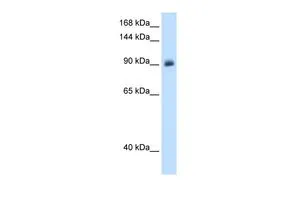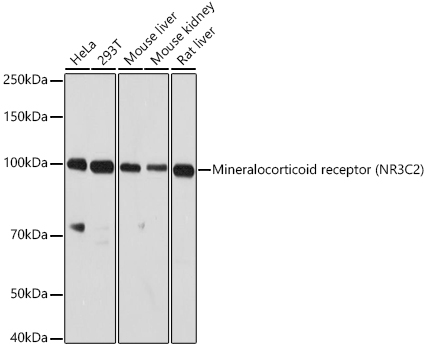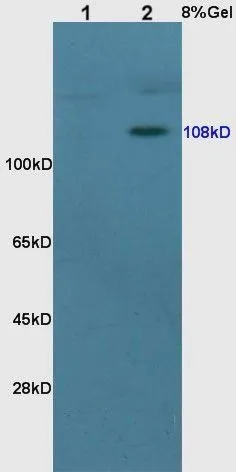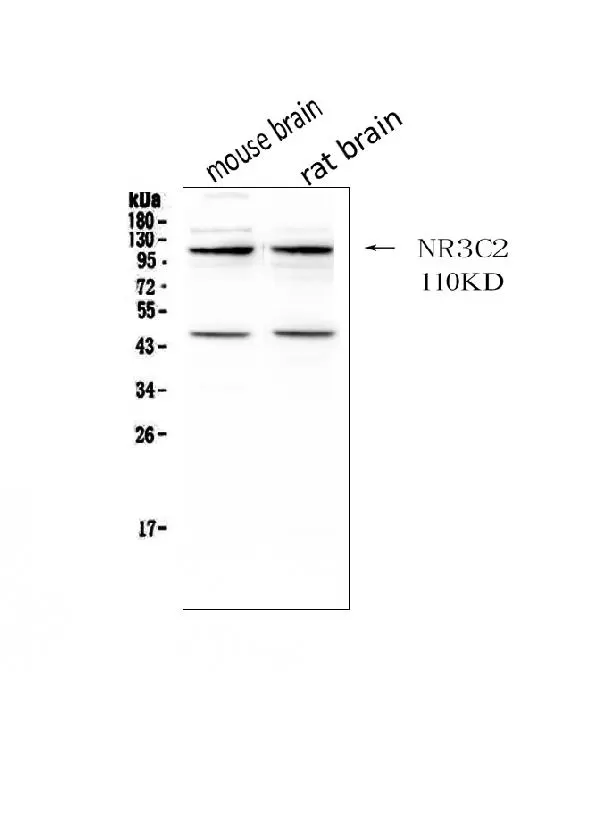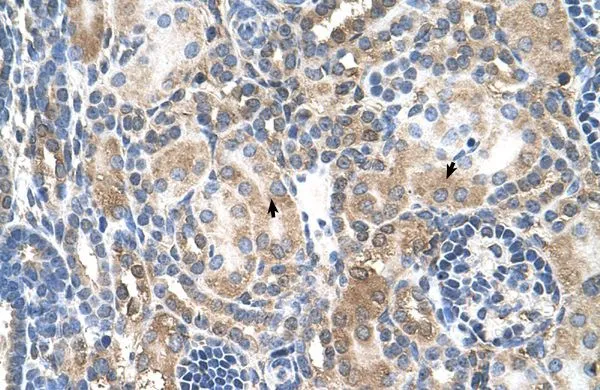
IHC-P analysis of human kidney tissue using GTX46537 Mineralocorticoid Receptor antibody at 4.0-8.0μg/ml.
Mineralocorticoid Receptor antibody, Internal
GTX46537
ApplicationsWestern Blot, ImmunoHistoChemistry, ImmunoHistoChemistry Paraffin
Product group Antibodies
ReactivityHuman
TargetNR3C2
Overview
- SupplierGeneTex
- Product NameMineralocorticoid Receptor antibody, Internal
- Delivery Days Customer9
- Application Supplier NoteWB: 0.2-2.5 ug/ml. IHC-P: 2-10 ug/ml. *Optimal dilutions/concentrations should be determined by the researcher.Not tested in other applications.
- ApplicationsWestern Blot, ImmunoHistoChemistry, ImmunoHistoChemistry Paraffin
- CertificationResearch Use Only
- ClonalityPolyclonal
- Concentration0.5-1 mg/ml
- ConjugateUnconjugated
- Gene ID4306
- Target nameNR3C2
- Target descriptionnuclear receptor subfamily 3 group C member 2
- Target synonymsMCR, MLR, MR, NR3C2VIT, mineralocorticoid receptor, aldosterone receptor, mineralocorticoid receptor 1, mineralocorticoid receptor 2, mineralocorticoid receptor delta
- HostRabbit
- IsotypeIgG
- Protein IDP08235
- Protein NameMineralocorticoid receptor
- Scientific DescriptionThis gene encodes the mineralocorticoid receptor, which mediates aldosterone actions on salt and water balance within restricted target cells. The protein functions as a ligand-dependent transcription factor that binds to mineralocorticoid response elements in order to transactivate target genes. Mutations in this gene cause autosomal dominant pseudohypoaldosteronism type I, a disorder characterized by urinary salt wasting. Defects in this gene are also associated with early onset hypertension with severe exacerbation in pregnancy. Alternative splicing results in multiple transcript variants. [provided by RefSeq, Oct 2009]
- ReactivityHuman
- Storage Instruction-20°C or -80°C,2°C to 8°C
- UNSPSC41116161

